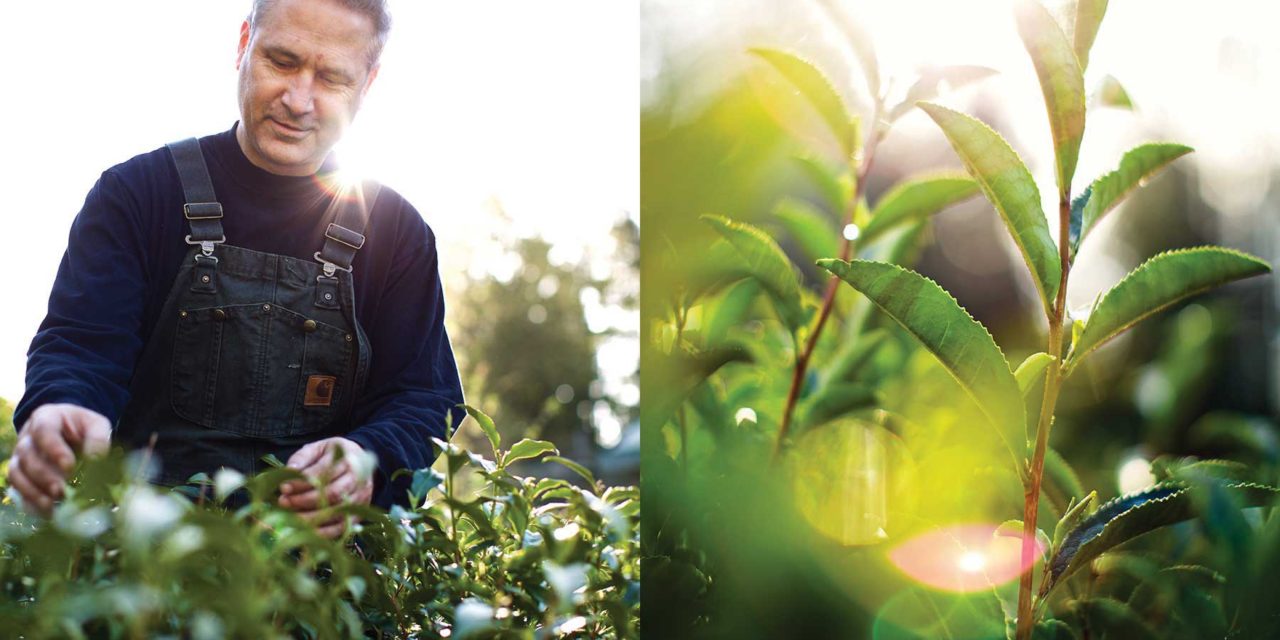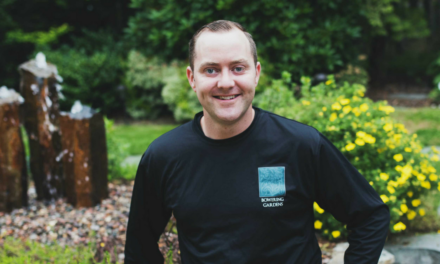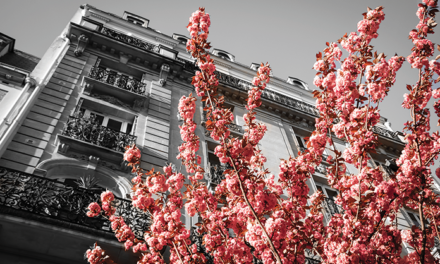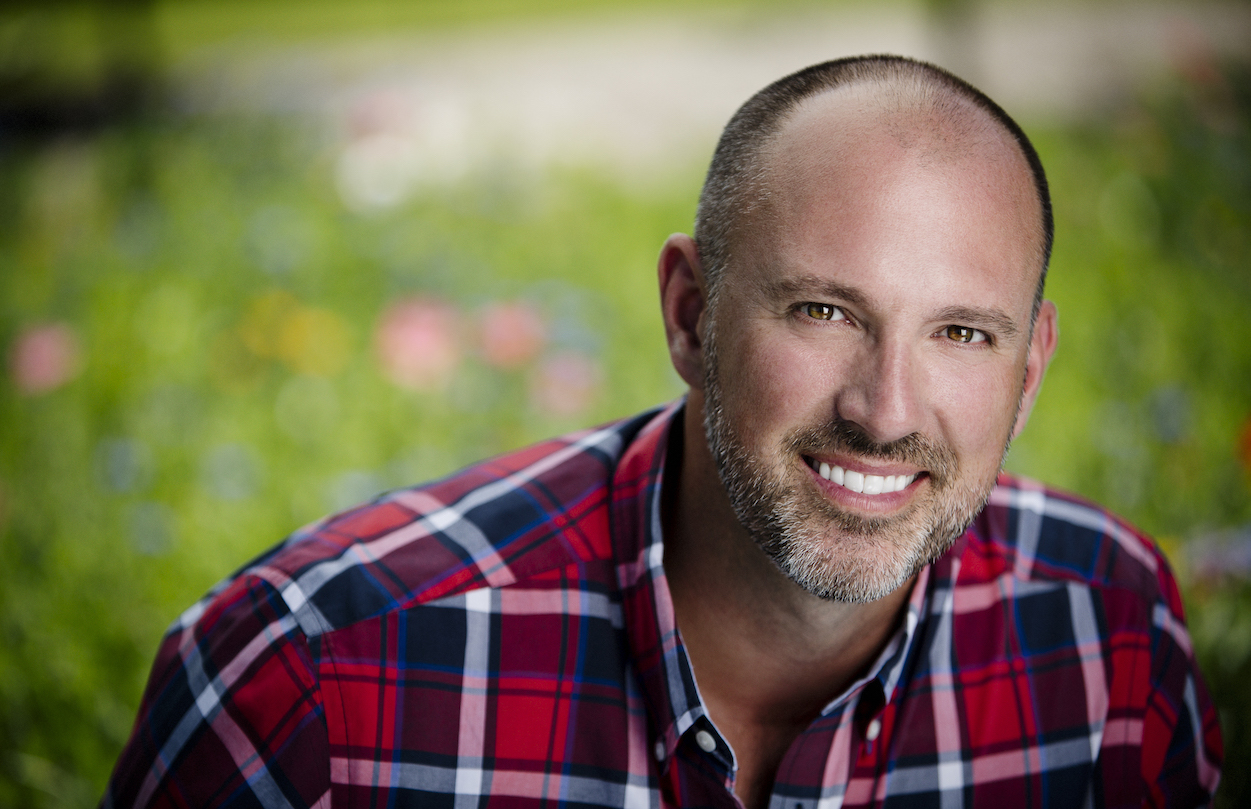By Brie Jarrett – Dundas, ON
On the lush, verdant, and fertile slopes of the Cowichan Valley, deep in the heart of a region called Westholme, a new chapter in Canadian history is quite literally growing. This picturesque region of Vancouver Island, BC., is known for a great many things, but perhaps its greatest claim to fame may have just been discovered. Rising out of the hillside and surrounding valley, like a silent army of tiny soldiers, are over eight-hundred plants, the likes of which this country has never seen. These are the fabled grounds of the Westholme Tea Farm, the first ever tea plantation to be commercially grown on Canadian soil.
Owners Victor Vesely and his wife and business partner Margit Nellemann, conceived of this vision from their shared love of tea, brewed and cultivated from years of travel around the world. Their focus was a desire for high-quality, organic tea, locally grown and sourced with the faintest ecological footprint; not to mention, Vesely loves a challenge. “ There was nothing I was told I could never do, and tea was one of them and nothing was going to stop me from doing that or at least trying.”
Westholme Tea Farm or “the experiment”, as Vesely likes to call it, has evolved rapidly since the purchase of their eleven-acre farm in 2003. The beginnings were humble, and the couple grew reasonable harvests of things such as lavender and garlic, biding the time before their tea empire was ready to emerge. These early days were also spent showcasing Nelleman’s art: stunning and one-of-a-kind ceramic creations, each piece a labour of love taking months to complete. These teapots, cups, saucers, and other tea accessories can still be purchased today, and the detail and craftsmanship that goes into each piece is truly remarkable.
Their focus began shifting almost exclusively to their love of tea making some time later, and in 2008, they began sourcing organic and biodynamic artisanal teas from other small-scale farms. From this simple and natural foundation, Nellemann and Vesely could then hand-blend many of their teas with locally-sourced, organic herbs, and now offer over 100 different tea varieties and creations. They even opened their very own, on-site tea house, which guests can visit to sample teas and delectable, handmade sweets, all served on Nellemann’s ceramic treasures. “We are unique as a company,” says Vesely, “we don’t use any synthetic essences or flavourings whatsoever, so no chemical structures.”
Now boasting 800 Camellia Sinensis tea plants and an ever-growing following, the pair recently decided to change the company’s name from the TeaFarm to Westholme Tea Farm, their way of paying tribute to the plant’s region of origin. A feat that was deemed nearly impossible given the unpredictability of the Canadian climate is now vibrant and flourishing, marking milestones in the market seemingly every day. The culmination of years of hard work, dedication and perseverance is now paying off in a big way, and the company recently launched Canada’s first ever commercially grown tea, Tree Frog Green: Spring Harvest tea (which has since been followed by Swallow Tale Oolong: Canadian tea). Both flavours made their debut alongside 140 commemorative hand- made teacups…created by Nellemann, appropriately enough, on July 1st, Canada Day. A historic and noteworthy moment both for the farm, and for the country; and not too shabby an outcome for just an “experiment.”
So what does it take to grow and produce the nest, purest organic tea in Canada? First, a profound love of tea, followed by a deep connection to nature and a resolute spirit, and finally heaping spoonfuls of patience; six years of patience to be precise. Self-taught in the art of tea growing and tea making, Vesely articulates, “ There is not a lot written about tea making. It’s an art form more than a science. There is no instruction manual. There is the basics, and then, you work from that.”
Most people have never been to a tea estate and don’t realize that all tea comes from the same plant. It is how the leaves are processed that ultimately determines whether the tea they produce becomes green, black, white or oolong styles. Oxidization is the process that affects the tea leaf when it is processed, so green tea leaves no decay or oxidization of the leaf. By contrast, black tea is 100% oxidization, with white tea at around 5-20% oxidization, and the oolong style coming in anywhere from 20 to 80% oxidization. Hand plucked and processed, tea farming is one of the most labour-intensive crops, next to perhaps vanilla beans and saffron. “Everyone can grow grapes but not necessarily make wine” says Vesely, “so it’s the processing and the pushing of the oils from the stem to the leaf and that specific art form, the manipulation, to create that flavour. You can’t just take a tea leaf and dry it and put it into water and call it tea. There is a process, there is an art form, there is an evolution, there is a knowledge and a skill to it.
The farm is completely self-sustaining, so the tea produced does come at a premium, but its one-of-a-kind, unique process and flavour cannot be found anywhere else in the world. Plans for the future include creating a product line of culinary teas and oils that can be used in cooking and in salads, and the pair also have their eye on developing a tea-flavoured honey, locally sourced from the 300 hives of bees living right next door to them.
Says Vesely, “For me personally, philosophically, as well as practically, the larger ills in our world are because people are disconnected from nature and from their environment. My partner, Margit, creates the chalice; the vessel that captures the art of tea making, and at that moment, the elements (water, earth and fire) come together to create the most accessible connection to nature. We don’t grow and make a product, we create an absolutely authentic experience.”
An anomaly to some, a curiosity to others, and an education for all, Westholme Tea Farm has already begun to draw worldwide attention. Everyone from DNA plant experts in Taiwan, to tea growers in New Orleans and even Chemical Engineers from the University of Toronto have come calling, keeping Vesely and his team ever humble to the power of the tea plant.
And in some small way, Westholme Tea Farm has shifted thousands of years of tea history, creating a new Canadian chapter with a bright and healthy future ahead of it. As Vesely puts it, “We are always going to be creating beautiful clay and beautiful handmade teas, in an exquisite setting. There will be more tea farms, but there will always be this one that started it all.
www.westholmeteafarm.com | @tasteteafarm









